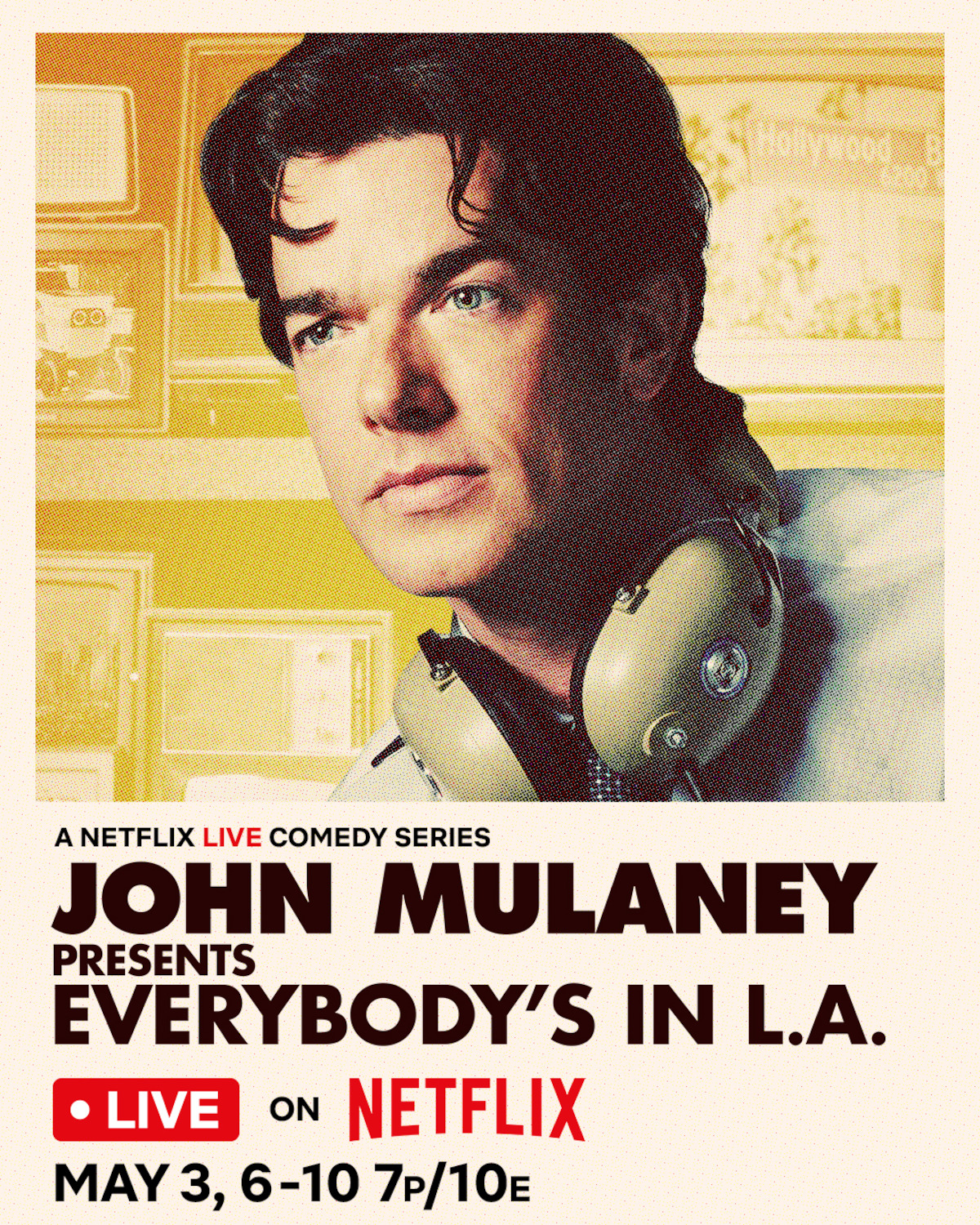I rant often a lot about how it's important to judge any sort of artistic endeavor first and foremost by how much it accomplishes what it sets out to do. This is a rubric that leads me to tend to pan, or at least be overly critical with, works that are loving pastiches (The Late Show, The Club Dumas); it also makes it harder for me to try and objectively analyze works that are so loudly in conversation with subject matter of which I'm ignorant.
Everybody's in L.A. is – I don't know if you want to call it a critique, or deconstruction, or reinvention, or whatever — a late-night show, and I've never been a late night show person. They're not for me in much the same way podcasts aren't for other people; we all have our comforts, and are not obliged to be warmed by others'.
There are many things that, I think, structurally, grate me about late night shows: the forced topicality, the sterility, the administrative requirement to make humor as broad and digestible as possible, the luxurious sluggishness. And Everybody's in L.A. feels like a shot of Fernet, designed to keep the "good parts" (a sense of coziness and camarederie, the loving languor, the fun that comes from interactions between famous people who otherwise wouldn't be caught dead in the same set as each other) and jettison the rest in favor of chaos and good-natured bonhomie.
A lot of the pre-canned segments did not land at all; a lot of the more famous guests were funny less on terms of their own presence and more just because seeing Jerry Seinfeld react to a Saymo is entertaining in a way that does not sustain for more than six episodes. But I had a great time with this, and I think Mulaney did accomplish what he set out to create: a love letter to late night (and, yes, to Los Angeles — the cards were fantastic) that was entertaining in its own right.
★★★★
